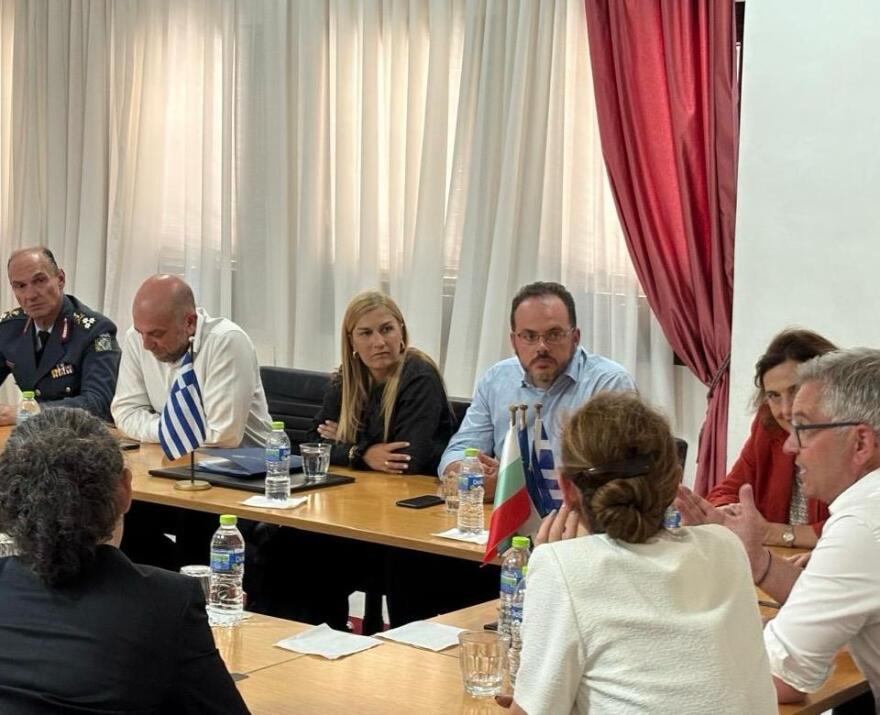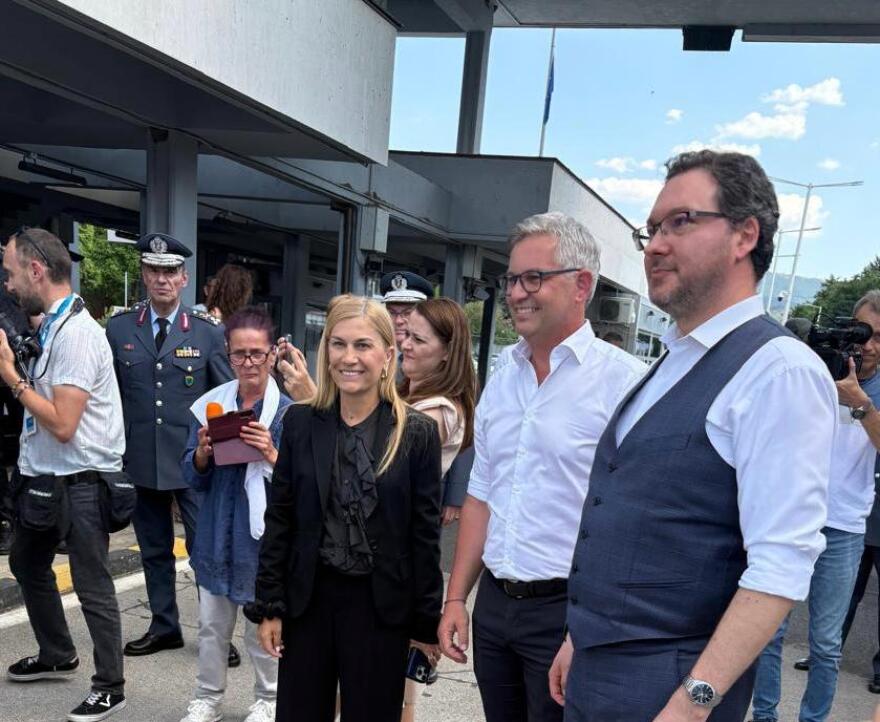At the border station Cula Today a trilateral meeting of the Deputy Minister of Migration and Asylum, Mrs. Sevis Voloudakiswith Bulgarian Interior Minister, Mr. Daniel Mitovand the Commissioner for Migration and Internal Affairs of the European Union, Mr. Magnus Brunner.
The meeting took place on the occasion of Bulgaria’s complete integration into the Schengen area and the abolition of internal border controls. It was preceded by a symbolic crossing by the Bulgarian side to the Greek side, followed by a working meeting at the Promachon Contact Center.
The Deputy Minister described today’s historic day for European unity and cooperation, noting:
“With Bulgaria’s accession to the Schengen area, border controls are now in the past. Greece welcomes this long -awaited and fair development, as we first connect directly to other Schengen zone countries. The benefits are clear: trade facilitating, faster transportation, push for tourism and tangible improvement in the daily lives of citizens. “
Ms Voloudakis emphasized Greece’s steady support for Bulgaria and Romania’s accession to the Schengen area, noting that this is a fair and necessary decision for European cohesion:
“The expansion of the Schengen zone is an act of responsibility and unity. Greece has consistently supported the integration of Bulgaria and Romania – not only for reasons of geographical continuity, but because it enhances the Union’s political and institutional cohesion. “

At the heart of the meeting were the management of the external borders, the strengthening of returns and the implementation of the new European Pact for Migration and Asylum. Participants reiterated the importance of constant cooperation to protect European borders, especially for front -line countries.
“As the countries of first reception, Greece and Bulgaria are well aware of the pressure on the external border. Their storage, the treatment of the trafficking circuits and the return of those who do not qualify for international protection are the foundations of our common strategy. “
Particular reference was made to the increased pressure from the Tobruk -Crete maritime route: “98% of illegal immigrants arriving from Libya come from Pakistan, Bangladesh, Sudan and Egypt. These are not refugees from war zones, but a majority who do not qualify for international protection. It takes operational readiness, coordination and political will at national and European level. “

Referring to the need to reinforce the political return, the Deputy Minister stated:
“The credibility of immigration policy depends on the effectiveness of returns. Those who do not meet the EU residence criteria should be returned quickly and safely. Greece applies a strict but applicable legal framework, in full alignment with the European Regulation under form. “
At the same time, Ms Voloudakis referred to the institutional need for legal and organized immigration, noting:
“The Greek economy needs workers’ hands – not by illegal arrivals. The Ministry of Immigration is preparing a new bill to organize legal immigration, with the aim of creating transparent, institutional channels, which ensure legitimacy and dignity for both workers and labor markets. ” In closing, the deputy minister sent a clear political message: “Today we did not re -borders – we overcame them. Free circulation, joint action and European perspective are conquests that require constant dedication, cooperation and trust. “
Turkolibycus Pact: Double Threat to Greece The influence of Ankara on Libyan warlords
Natalie Karnif for Zoe Konstantopoulou: “It is incredible that a woman defended my rapist”
16 years in prison in the leader of the “Mafia of Loukoumades” in Halkidiki
